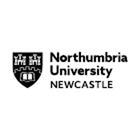- News and articles
- Find usIDP AustraliaIDP BahrainIDP BangladeshIDP CambodiaIDP CanadaIDP ChinaIDP EgyptIDP GhanaIDP Hong KongIDP IndiaIDP IndonesiaIDP IranIDP JordanIDP KenyaIDP KoreaIDP KuwaitIDP LebanonIDP MalaysiaIDP MauritiusIDP Middle EastIDP NepalIDP New ZealandIDP NigeriaIDP OmanIDP PakistanIDP PhilippinesIDP Saudi ArabiaIDP SingaporeIDP Sri LankaIDP Taiwan, ChinaIDP ThailandIDP TurkeyIDP UAEIDP VietnamIDP Corporate
- Social
- English
- Where we operate
- Courses
- Scholarships
- IELTS
- About IDP
- Student Essentials
- News and articles
- Find us
- Find us
- Find nearest IDP offices
- IDP Australia
- IDP Bahrain
- IDP Bangladesh
- IDP Cambodia
- IDP Canada
- IDP China
- IDP Egypt
- IDP Ghana
- IDP Hong Kong
- IDP India
- IDP Indonesia
- IDP Iran
- IDP Jordan
- IDP Kenya
- IDP Korea
- IDP Kuwait
- IDP Lebanon
- IDP Malaysia
- IDP Mauritius
- IDP Middle East
- IDP Nepal
- IDP New Zealand
- IDP Nigeria
- IDP Oman
- IDP Pakistan
- IDP Philippines
- IDP Saudi Arabia
- IDP Singapore
- IDP Sri Lanka
- IDP Taiwan, China
- IDP Thailand
- IDP Turkey
- IDP UAE
- IDP Vietnam
- IDP Corporate
- Social
- Language Switcher
- IDP Education /
- Colleges and Universities /
- United Kingdom /
- Northumbria University, New... /
- MA English Language and Lin...


Location
United Kingdom
Qualification
Masters Degree (Taught)
Fees
GBP18250
(2025)
Duration
1 Year(s)
Next intake
22 September 2025
Entry Score
6.5
IELTSCourse info
Employability is embedded into the programme at all stages, in the form of encouraging life-long learning, critical skills and attitudes, presentation skills, and reflective and evaluative abilities. Upon completion of the programme, you will be self-motivating, show initiative and personal responsibility, be capable of making decisions in complex situations, and possess a thirst for independent learning. In addition to these personal skills, as a graduate you will have demonstrated a critical awareness of the current research and scholarship within your discipline, facilitating your ability to interpret knowledge in a variety of professional fields. Our MA programmes build on existing undergraduate skills, distinguished by the level of intensity, complexity, and density of study. You will have demonstrated your advanced communication skills, media literacy, time management, ethical and professional understanding, as well as highly developed research and inquiry skills. From the start of the programme, you are encouraged to access to the central university Careers and Employment Service, and to use this service regularly to seek advice on areas such as career guidance both during and after your course. This Masters programme will prepare you for a wide range of careers, including journalism, public relations, advertising, marketing, communications and communication technology, artificial intelligence projects, as well as helping you to develop as a field linguist or academic. There are also careers in which linguistics is applied, such as teaching, speech therapy and forensics. More generally the programme enhances the employability of graduates in areas in which a sensitivity to language and communication are valued. There are also considerable opportunities for you to advance your studies further, and, should you wish to do, we are are eager to offer advice on writing PhD proposals and funding applications during your studies.
- Scholarships View all scholarships
- Internships
Course fees are indicative and should be used as a guide. to get an accurate price.
Duration: 1 Year(s)
Fees: GBP18250
| Intake | Location |
|---|---|
| Semester 1 (September), 2026 | Newcastle-upon-Tyne |
| Semester 1 (September), 2025 | Newcastle-upon-Tyne |
Entry requirements for Northumbria University, Newcastle
Application Deadline
The application deadline isn't available Speak to an IDP counsellor for more detailed information
Further information
If you aren't eligible for the above entry requirements, you might ant to explore pathway options at Northumbria University, Newcastle. If you want to find out more, speak to our counsellors.
THE World Ranking
401st / 1250
THE World Ranking36th / 130
Complete University guideWhat our students think
We’ve haven’t received any reviews for this institution yet.
Recommended for you
- Masters Degree (Taught)
- Glasgow , United Kingdom
- Next intake:09/2025
- Entry Score: IELTS 6.5
- GBP25290 (2025)
- THE World Ranking:601
- Graduate Certificate
- London , United Kingdom
- Next intake:09/2025
- Entry Score: IELTS 6.5
- GBP5000 (2025)
- THE World Ranking:1001
- Masters Degree (Research)
- Canterbury , United Kingdom
- Next intake:09/2025
- Entry Score: IELTS 6.0
- THE World Ranking:601
- Graduate Certificate
- Aberystwyth , United Kingdom
- Next intake:09/2025
- Entry Score: IELTS 7.0
- GBP16045 (2025)
- THE World Ranking:601
- Masters Degree (Taught)
- Aberystwyth , United Kingdom
- Next intake:09/2025
- Entry Score: IELTS 6.5
- GBP17905 (2025)
- THE World Ranking:601
- Masters Degree (Taught)
- Aberystwyth , United Kingdom
- Next intake:09/2025
- Entry Score: IELTS 7.0
- GBP17905 (2025)
- THE World Ranking:601
- Masters Degree (Taught)
- Aberystwyth , United Kingdom
- Next intake:09/2025
- Entry Score: IELTS 7.0
- GBP17905 (2025)
- THE World Ranking:601
- Masters Degree (Taught)
- Brighton , United Kingdom
- Next intake:09/2025
- Entry Score: IELTS 6.5
- GBP15900 (2025)
Your action plan
Step 1
Shortlist your courses
Choose the best three courses you’re most likely to pursue.
Step 2
Check your eligibility
Get an instant in-principle offer for courses with the IDP FastLane tag.
Step 3
Apply through IDP Live
Fill out the form once and use it to apply to multiple courses.
How does IDP FastLane work?
With the FastLane 'Offer in Principle', you'll know in minutes if you'll be accepted!
Select an institution and course
Create your academic profile
Submit your application for an 'Offer in Principle'
Your chosen institution(s) will send you a decision in minutes!
Get ready to apply with an expert counsellor




